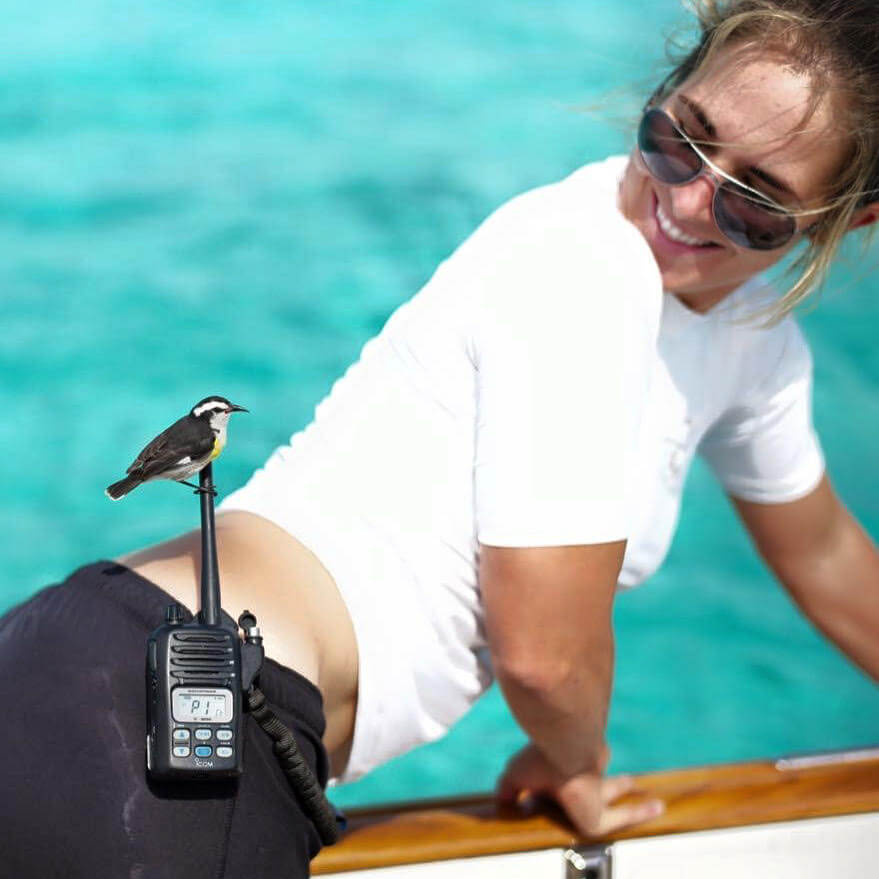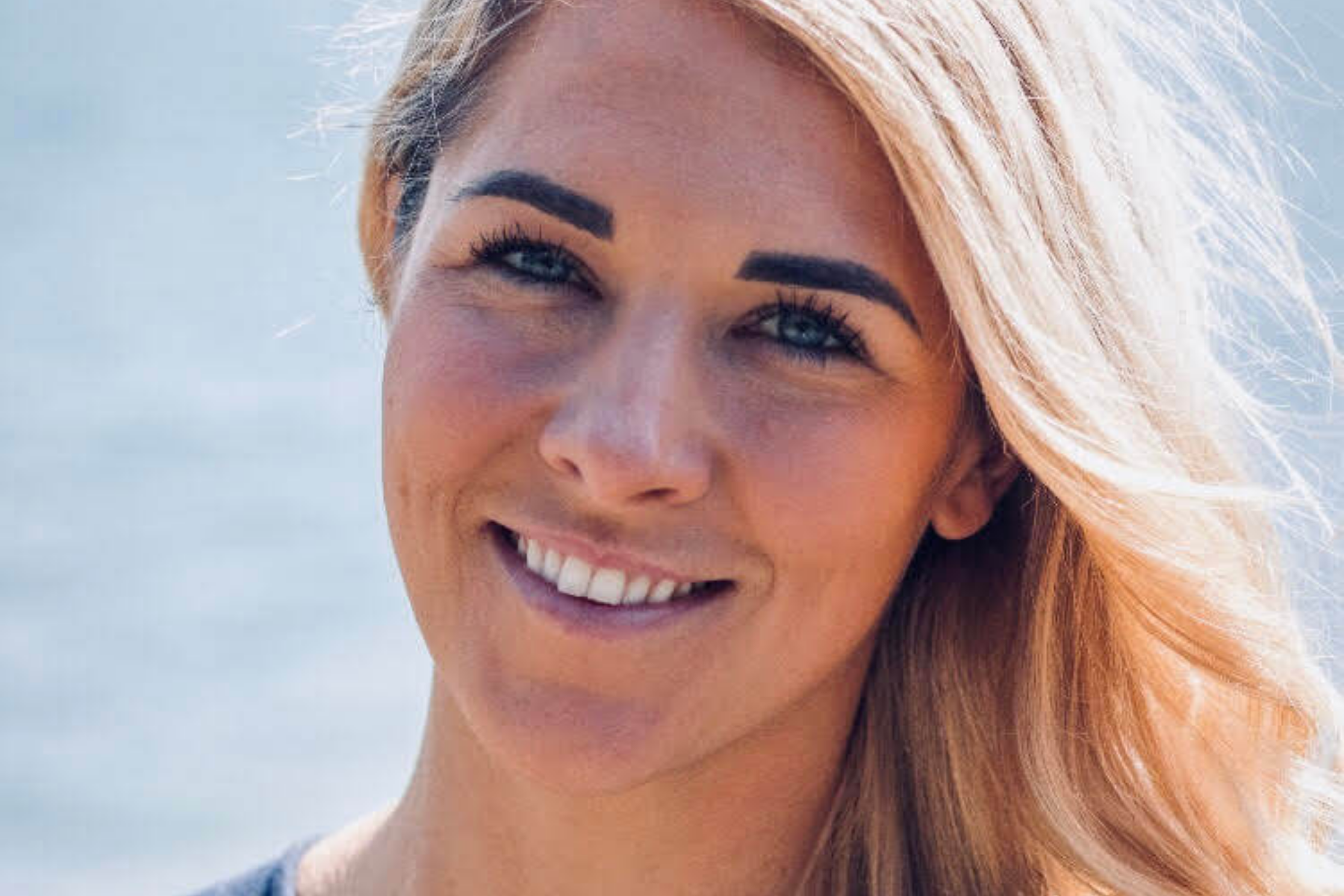Jess Ayling’s Career in Yachting
Jess Ayling is no ordinary Purser. This young lady started out as a deckhand and impressively worked her way up the ladder, gaining her OOW in the process. Her passion for her job is palpable, injecting an aspect of care into the industry that is oftentimes absent. She opens up about her career in yachting and how her journey took her from deckhand to Purser.
Did you always want to get into yachting?
Originally I considered yachting a kind of ‘stop gap’ before I went to university. I genuinely thought I would be in the industry for a couple of years. I had no idea the journey I was about to undertake. Thirteen years later I’m still here and I have no regrets.
What made you choose the deck route vs. interior when starting your yachting career?
There was no question that I would go the deckhand route when I first got into yachting. Growing up sailing, diving and driving boats, it was a complete no brainier. Back in 2008, it was still quite uncommon to have female deckies. The yacht agents tried to convince me I should go for deck/stew roles. The best piece of advice I was given was to stick to my guns and tell them I only wanted to be considered for a full deck role. After being told I would struggle, I proved them wrong by having seven solid job offers after 2 days in Antibes, I joined my first yacht a couple of weeks later in Mexico.
What was it like working your way up on deck?
It was so much fun, I loved the comradery that comes with being on deck. I learnt to be tough and take a lot of jokes, however, at the same time I have only ever felt truly respected by the men I have worked with. Unfortunately, I know this is not always the case, and misogyny is still very prevalent in Yachting. As a female, I felt things get slightly more difficult when I wanted to start climbing the ladder and asking for more responsibility. There is a huge appeal of having a female deckhand. However, they become more sceptical when it comes to a female in a leadership role over a team of men. You certainly have to work twice as hard, study and get all your tickets before you are taken seriously.
Tell us what made you transition from a Second Officer to a Purser Role?
I was in a time of my life where I was unsure what direction I wanted to take in yachting, I loved being Second Officer however I knew I did not want to become a Captain. I had been playing with the idea of being a Purser as there are many transferable skills. I Spoke to one of the lovely ladies at Wilson Halligan for some advice, and they gave me the courage to go for it and put my CV out there.
Who has been a mentor/support for you in your yachting career?
My current Rotational Captains have been an invaluable part of my career growth as Purser and I have a great working relationship with them both, they are so encouraging. Throughout my entire career my sister, Nicki Ayling, who was also in the yachting industry for many years has always been someone I’ve looked up to as a strong female dominating in a male field.
What challenges do you face working as a Purser?
The past couple of years of ‘COVID madness’ has been extremely challenging as a Purser, I feel like I have learnt so much in a short space of time. I have learnt to prioritise and handle anything that is thrown in my direction and I simply do not sweat the small stuff anymore. Another huge thing I have to consistently work on is handling my emotions in a high-pressure role. I really care about my job, and the crew, but sometimes you have to try and detach as you can get overburdened by others’ expectations of you. When you are under pressure it’s easy to feel like this.
The only other huge challenge I face is coming down for lunch without being bombarded with questions about crew flights… but I guess that comes with the territory.
How do you feel about the future of the industry?
I am hoping to see some positive sustainable changes as we become more aware of the impact our actions have on the planet. COVID has made people evaluate what is really important.
What has been your favourite thing about yachting throughout your yachting career?
There are too many highlights for me and I have been to some unbelievable places and had unforgettable experiences. My absolute favourite thing is the people I’ve met and knowing that I now have friends all around the world to visit (when we can all travel again).
What is next in the pipeline for you?
Yachting has been my life since I was a green deckhand at the tender age of eighteen. I am currently lucky to be employed on a fantastic vessel so I’m really happy where I am right now. If and when things change I would still love to work around the industry somehow although I am not sure in which capacity.
What advice would you give young ladies looking to start their yachting career with regards to which path to take?
I would say I am a testament to the fact that if you are not sure which direction to go, you can always change your mind later on. A career in yachting is incredible and if you work hard you will reap the rewards, so go for it!

It’s clear that we can expect great things from Jess. As for her career in yachting, I doubt we’ll see the last of it for some time to come. Thanks for making the industry a better place Jess!


